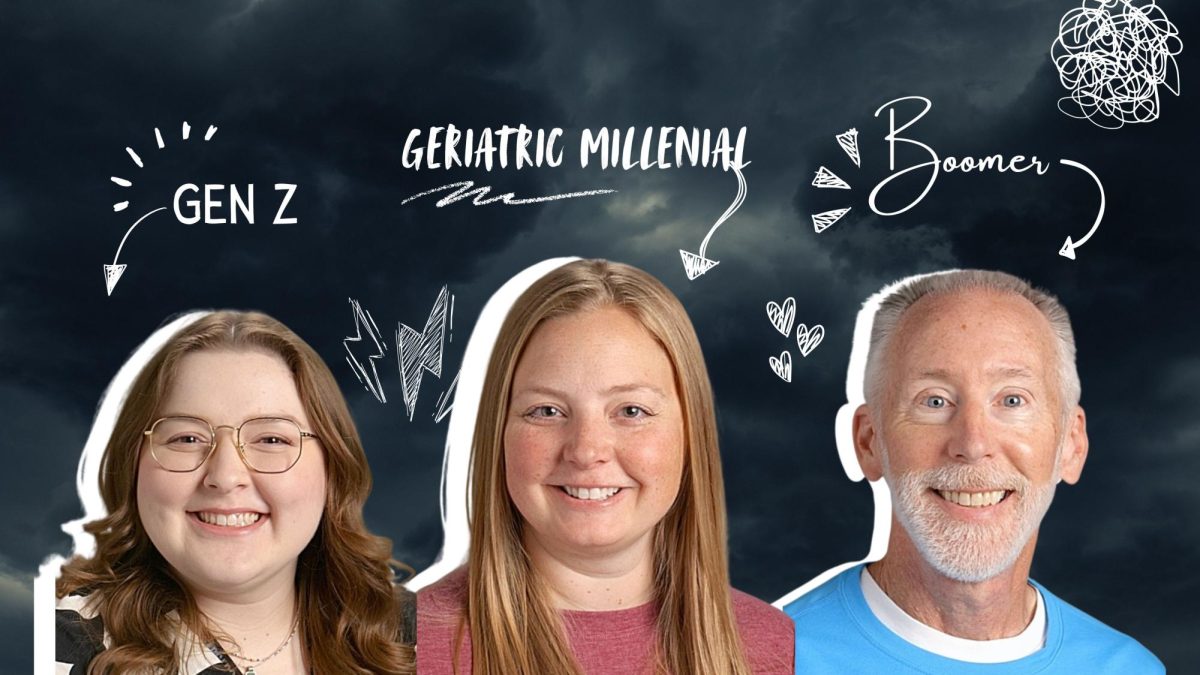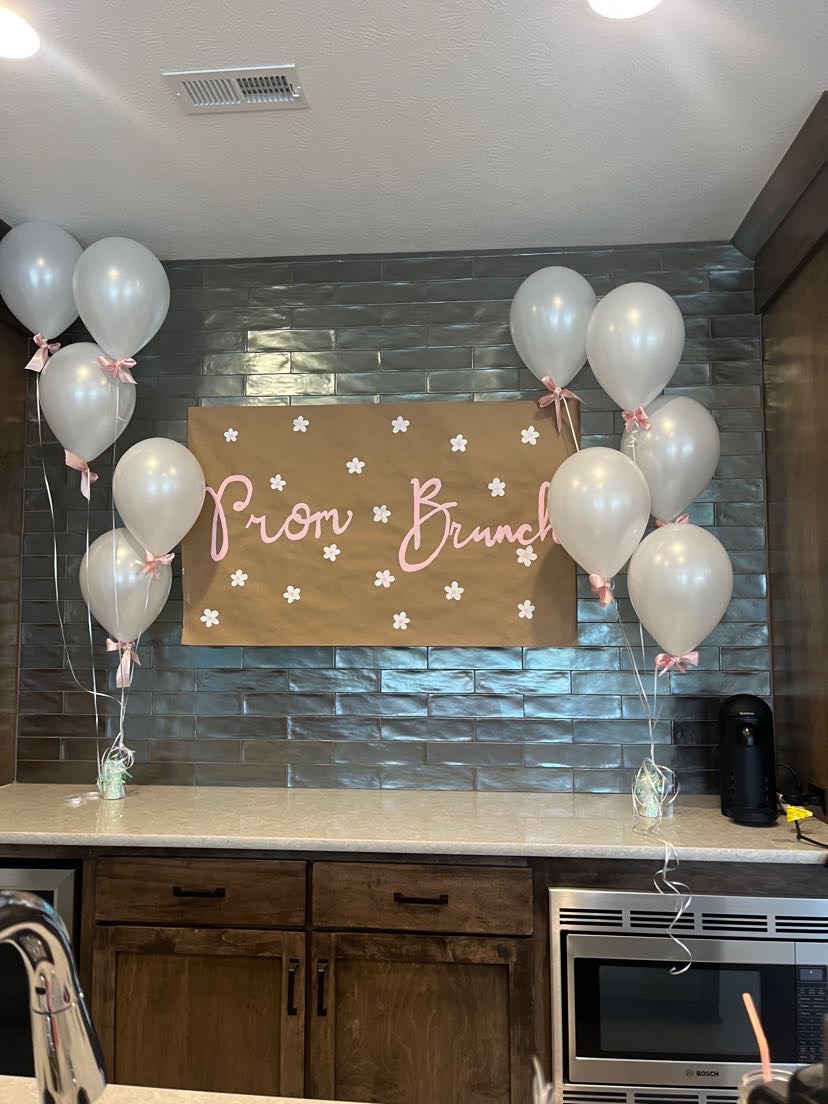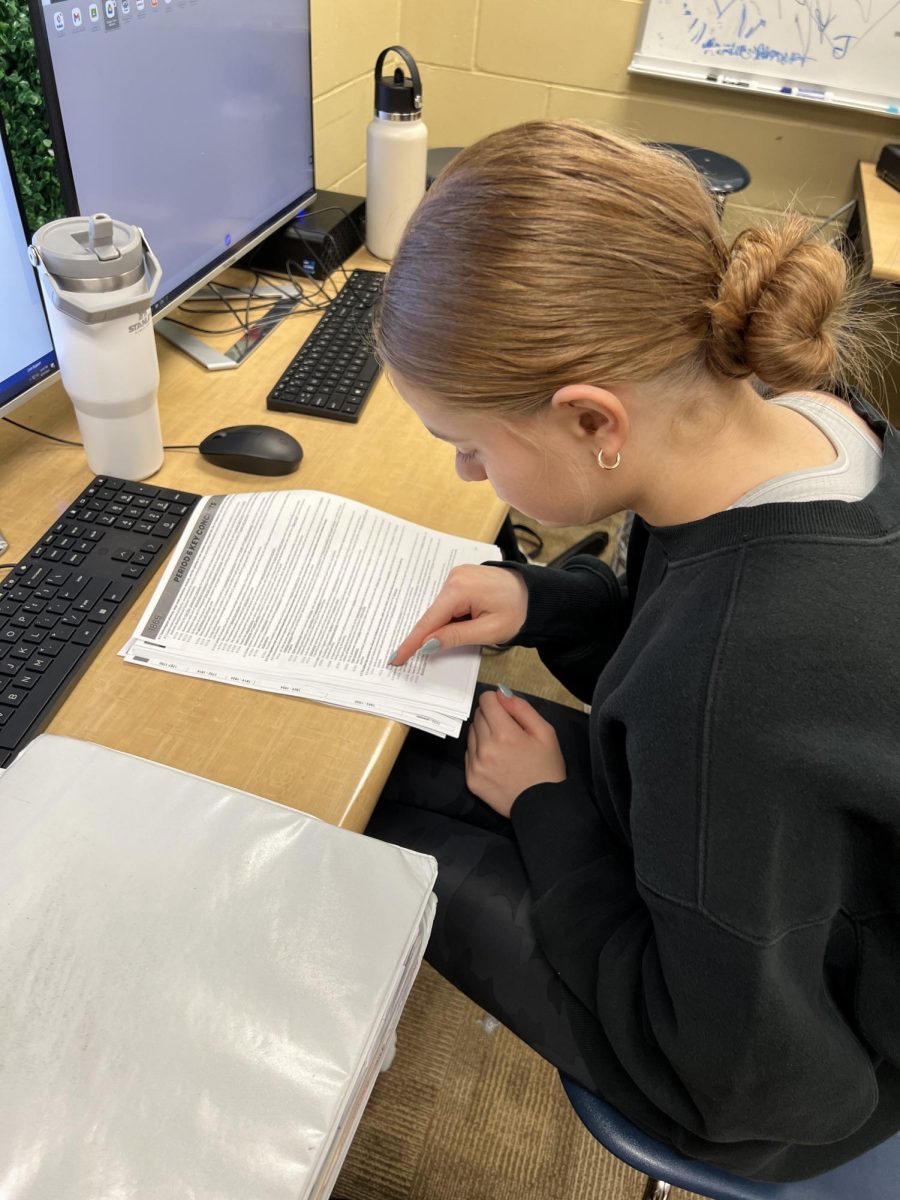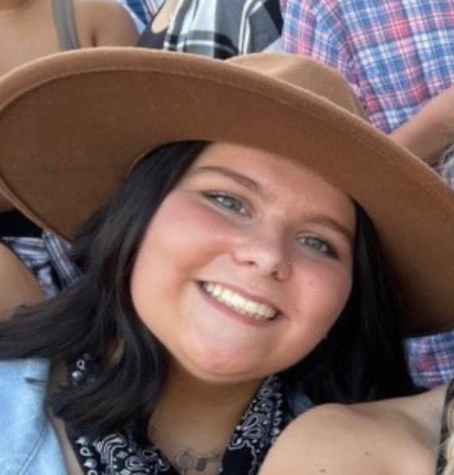This year marks the start of a new generation, generation Beta. Like the start of all new generations, people have begun to predict what this generation will bring to our world and how they will differ from past and present generations. All of this was discussed in an article published in our Volume XV Issue 3, spring issue this year, but I set out to interview our staff at Elkhorn South to find real point of views on this topic. In my interviews with various teachers from various generations, I asked them a series of questions pertaining to themselves and to this future Generation [Beta], here are my questions and their answers.
What generation are you a part of? (Boomer, Gen x, Geriatric Millennial, Millennial, or Gen Z)
- Alyssa Grell (English teacher at Elkhorn South): “Gen Z (born in 1997)”=
- Brianna Janda (Math teacher at Elkhorn South): “I am part of the Xennial generation (I think you called them Geriatric Millennial but that makes me sound even older lol)”
- Dennis DeLong (Elkhorn South Shop teacher): “I was born in 1964 so I think I am towards the end of the “Boomer” generation”
Do you feel like you identify with the whole of your generation (the quintessence of the generation if you will), why or why not?
- Grell: “I’d say mostly yes. I am on the cusp of Millenial and Gen Z, so a good chunk of my formative years were shaped by the culture and interests of Millenials. I was big time into Millennial style (infinity scarves were a staple in my closet) and media during high school. I checked Buzzfeed daily if that tells you anything. As I’ve gotten older and spent 40 hours each week with Gen Z students, I think I have leaned toward that side more and more. It’s probably a combination of both though.”
- Janda: “I do identity with my generation. Because I grew up in the boom of technology, I feel like I am adaptable, I can work with technology but remember a life before technology. I am able to relate to most generations because of these experiences. I value quality and sustainability.”
- DeLong: “While it is hard to speak on “identity” with my fellow Boomers I feel I can safely say that I most likely would fit in fairly well with my peers. Most seem to have a good work ethic and are progressive in nature.”
What do you think your generation may lack? What is a positive attribute of your generation?
- Grell: “Largely, I am inspired by Gen Z. Gen Z represents one of the most progressive and well-educated generations ever. Gen Z is funny, passionate, and willing to stand up for what is right. On the other hand, Gen Z can be overly reliant on technology to the detriment of themselves and the world around them. Because of their firm morals, Gen Z can also struggle with seeing everything as a black and white situation, completely unable to see the gray.”
- DeLong: “With me being a late Boomer, we may see the World in a slightly different light as our predecessors. The Civil Rights issue along with the Vietnam War were somewhat in the rearview mirror as we became adults. I think because of that, we view certain things as taken for granted whereas those things that we assume always existed actually came hard to others before us.”
In your time as an educator have you taught more than one generation of students, if so what are some of the key differences you noticed
- Grell: “I’ve only taught Gen Z.”
- Janda: “I have taught millennials and gen z.”
- DeLong: “The individuals haven’t changed but the culture around them has. The first generation of students I taught had more consequences than the younger generation. It appears that the parents tend to side with the younger generation than those that came before them. The parents typically sided with the Teacher but now it is more times than not, quite the opposite.”
What is a piece of advice you would like to give to the newer generation(s), or if you would like to challenge the status quo, what is a piece of advice you would like to give to the older generation(s).
- Grell: “I think that people, both younger and older, need to be more respectful to things they may not understand. It is okay not to know everything about every group of people. Times change and people change, which is okay. You can still treat people who are different from you with kindness even if their lives don’t completely align with yours.”
- Janda: “The advice I would give to older generations is to learn from the younger generation that self care and mental health is vital and NOT a sign of weakness. It is more and more common to talk about, seek help, and prioritize mental health and this is a good trend that younger generations have championed that older generations felt was a personal issue that was to be dealt with behind closed doors or just plain ignored.”
- DeLong: “I would like everyone to have more empathy. Like I stated earlier, some generations take some things for granted while others saw the hard work it took to make things better. History will be a guide and one should never lose focus on that.”
Advancements in technology, pop culture, wealth gaps and more affect the distance we see push generations apart and create divides; what do you think separates your generation from either an older or younger generation?
- Grell: “I think you pretty much nailed it. Technology seems to be the great divide. I think I grew up at the perfect time as tech shifted. Throughout my childhood, we shifted from VHSs to DVDs to Blu-Rays to Streaming. For a long time, we had one computer in the basement and nothing else. I got to grow up with some technology but not enough to have altered me too much. I didn’t get a smartphone until my Freshman year. That means that I understand technology, but I am not necessarily beholden to it. My parents are in their 50s and really lack technological know-how. They aren’t able to determine reliable sources from dis/misinformation. They need help to send links. They also seem to lack phone etiquette. I have to scold them all of the time to put their phones away and pay attention. Despite the fact that they’ve had smartphones for years, they still seem like novices. Younger people seem to have technology all figured out, but they’ve never had to live without it. They seem to lack a lot of skills because they’ve never needed to learn them. Younger people struggle with creativity and literacy. They struggle with critical thinking and problem solving. Because so many things come easy, younger people can struggle with anything that’s tough.”
- Janda: “I think my generation is in such a unique position to relate to multiple generations. We know what life was like without technology. We have lived through technological advancements. We are equipped to relate to generations before and after the boom of technology.”
- DeLong: “Communication. The older generations seem to have fewer issues with suicide and emotional issues. I think that is mainly due to “how” communication occurred. The younger generation seems somewhat removed from reality in some cases. For example, the garage door opener was part of the reason neighbors don’t engage with one another. It is too easy to push a button and drive your car in and shut the door whereas the older generation actually had to get out of their car and lift the door open. As little as that sounds, it actually makes a difference on communication along with empathy once you really get to know your neighbors.”
Every older generation carries contempt for the new generations, it’s a near endless cycle of, “kids these days”, but it’s important that we recognize the good and bad that can be presented with each new generational addition to society. With that being said, what are your personal predictions about the generation to come, Gen [Beta]?
- Grell: “The world is in significant turmoil right now. I have to imagine that this will mold Gen [Beta] as they grow up. They have a tough road ahead of them in regards to education, politics, and so much more. I hope that this makes them resilient and determined.”
- DeLong: “Like I stated before, I personally think all people have “good” in them. When doing Driver’s Ed., I don’t know if I ever walked away thinking that the person I drove with is a “bad” student. On the contrary, in the classroom I sometimes scratch my head and wonder why students cuss more and seem to not respect their elders. I think it is more of a culture problem than an individual problem. Outside influences are forced upon everyone and the older generation fail to see that sometimes. What the older generations seem to misunderstand is that they have set the system up that they now don’t like. They often forget that detail though.”








